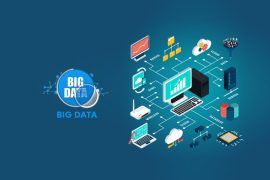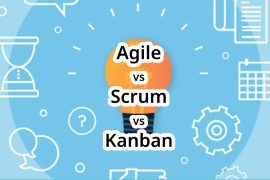Digital product management is about creating, characterizing, supplying, monitoring, and improving digital products to get optimum results from a market that translates into sales, client satisfaction, and much more. Product managers supervise the entire lifespan of a digital product, from its birth to its takeoff and beyond. Digital product managers employ the same technique to improvise products as per the need in the market and, mostly, to remove existing products from demand entirely.
Digital Product Management tasks comprise:
- Target Market, Clients, and Competitors’ research
- Analysis of Customers and Products
- Vision of the Product and strategy making and upkeep of the product
Leaders also work with product teams to prioritize product credentials to optimize customer value, evolution, and digital business outcomes. A product manager can fetch the best of a product’s version in the market through teamwork.
Table of Contents
What is (Non-digital) Physical Management?

(Non-digital) Product management implies nurturing a specific product within a firm. The organization balances the need to work out in a manner to add and deliver value to your company (usually profit) with what customers desire and what’s deliverable.
Therefore, we understand that Product Management (digital and non-digital) is a managerial function that directs every step of a product’s lifespan — from growth to its placement and pricing — by consolidating the product and its customers first. To build the best viable product, product managers evaluate the needs of the customers within the organization and make the market trends heard and heeded at the company level.
Product teams churn out better-designed and higher-performing products to focus on the customers’ needs. In the technology world, where newer and better solutions fast eliminate existing products, there is always more need for a close-knit understanding between customers and the power to devise customized answers for them. Here product management comes in.
Digital vs. Non-Digital Physical Product Management
The immediate difference between digital versus non-digital product management is the availability of data. Otherwise, managing digital products is essentially similar to non-digital products. Digital PMs will need to:
- Clearly understand customer needs
- Clarify the product completely
- Understand the product strategy
- Define the go-to-market strategy
- Gather requirements
- Direct product engineering to the needs of the user
- Explicit sales and marketing tactics
- Be the PoC for the product
- Adhere to the product roadmap and convey changes from time to time.
A difference between digital products and non-digital product marketing is that digital product managers can access more data. DPM has access to various metrics assembled from the customer’s interaction with the product that non-digital product managers never have.
Product developers can modify digital products more easily; digital product managers learn new information continuously. This ongoing learning helps them find tender spots and spin new insights into the product. This improves customer user experience, making good products extraordinary.
A non-digital product does not have this data without additional physical consumer research. Even if you gather this data manually, it may not be flawless.
Non-Digital Marketing
The efficiency of Product Management is displayed in the customer focus while marketing the product. Using set techniques and the same brand value, product management teams should try to benefit by using their customers’ lingo in their product’s messaging. Similarly, understanding the competitive topography and the capacity to stand out and distinguish pays rewards in the long run. Understanding essential marketing and positioning concepts will help product managers make customer-friendly products.
Product management is the strategy of conceiving, planning, launching, and managing a product or service. It includes the entire life cycle of a product, from ideation to outcome till going to market. Product managers are responsible for ensuring that a product meets the needs of its target market and contributes to the business strategy while managing a product or products at all stages of the product life cycle. Software product management adapts the fundamentals of product management for digital products.






